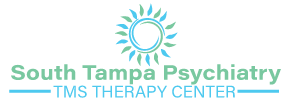Obsessive-compulsive disorder, or OCD, is a common anxiety disorder. Its onset generally occurs in late childhood or early adolescence and is marked by persistently disruptive thoughts or repetitive actions. These are grouped into obsessions, thoughts and compulsions, the actions. People’s awareness of their obsessions and compulsions varies. However, what remains consistent across people with OCD is their inability to control them. The good news is that OCD is treatable using a combination of therapies, medications, and support.
Our OCD and addiction experts are here to support you. Learn more about OCD treatment in Florida by contacting South Tampa Psychiatry at 866.273.5017 or online.
Obsessive Symptoms of OCD
Before exploring OCD’s causes, it is critical to examine its symptoms and how it impacts people’s daily lives. OCD’s symptoms fall into two categories: obsessions and compulsions.
On their face, obsessions often resemble concerns or worries shared by many people at different times. They generally involve some or all of the following:
- Fear of germs, contamination, dirt, or other things in the environment
- Fear related to injury, illness, or sudden death
- Obsession with order or cleanliness
Obsessions often coincide with triggers, which can range from objects to places to smells to certain words. Ultimately, the presence of obsessions results in a variety of ill effects for someone with OCD, including anxiety and panic.
Compulsive Symptoms of OCD
There are also compulsive symptoms of OCD. It can be helpful to think of the connection between OCD’s two sets of symptoms in this way. Obsessions are the mental expressions, while compulsions are the physical actions resulting from the obsessions. Some of the most common compulsions related to OCD are:
- Excessive hand washing
- Checking and rechecking things related to safety around the house, such as whether the stove is on or if the doors are locked before going to bed
- Having household objects placed in an exact manner and constantly monitoring that they remain so
- Mental repetition of words, numbers, or phrases
- Small physical repetitions such as finger or toe-tapping
For someone with OCD, compulsions become rituals that occur to avoid the anxiety, panic, or stress their obsessions may otherwise cause. Moreover, due to societal stigma and the mental health burden OCD can place on people, these physical symptoms often occur alongside shame or embarrassment.
Causes of OCD
The medical community has not pinned down the exact causes of OCD. Nonetheless, decades of research have begun pointing to a set of likely factors. These may include:
- Compulsions as learned behaviors – It is possible that compulsions are actually learned and acquired by people over time as a result of their brains coming to associate the behavior with anxiety relief.
- Genetics and heredity – Similar to many other mental health disorders, genetics and family history can play a role in causing OCD.
- Brain chemistry – Also aligned with the suspected causes of other mental health disorders, brain chemistry likely influences whether or not someone will experience OCD.
Beyond the potential confluence of those three factors, traumatic life events, hormonal changes, and someone’s ingrained personality can cause OCD. The hormonal changes stick out as a potential cause due to OCD, which often occurs in late childhood or early adolescence. However, more research is necessary to understand the potential link.
Contact South Tampa Psychiatry
South Tampa Psychiatry provides expert resources and support for OCD treatment. Moreover, we recognize and understand the connection between OCD and addiction. We cater our treatment programs to ensure your healing.
The most effective OCD treatments include cognitive behavioral therapy and medications, often in combination. The cognitive-behavioral therapy used in OCD treatment is a type called exposure and response prevention. This treatment targets someone’s compulsions and retrains their brain to respond in a healthier way when they would otherwise. Learn more about our OCD treatment programs by calling us at 866.273.5017.







